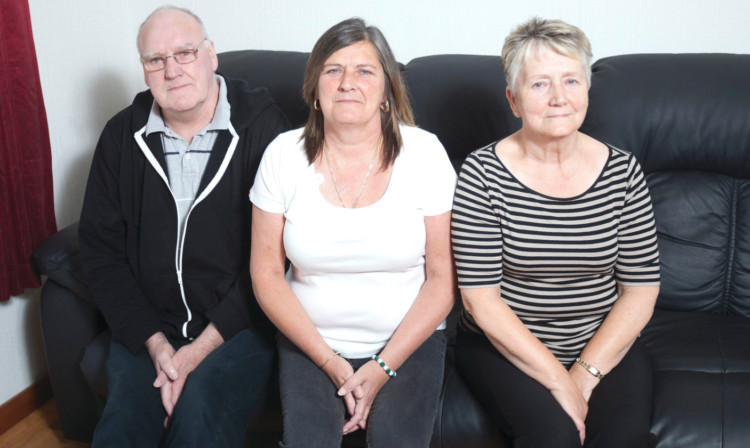
Isabelle is denied potential life-saving drug, because she doesn’t have £12,000 to try it out first.
A mum claims she is being denied a life-saving cancer drug on the NHS because she doesn’t have enough money.
Isabelle McManus, 50, of Stevenston, Ayrshire, has twice been turned down for cetuximab to help in her battle with bowel cancer.
Her doctors have supported her claim to the drug, which is freely available to patients in England and Wales.
But bureaucrats at NHS Ayrshire and Arran have twice rejected her plea on cost grounds, including last week.
Isabelle lives close to June Rankin, 59, who was also turned down for cetuximab by the same health board this year. She eventually resorted to paying £3,000 a month for the drug.
Four months later, in the face of medical evidence that it was keeping her alive, the board backed down and agreed to fund ongoing treatment.
It also agreed to reimburse her the £12,000 she had spent going private.
Mother-of-two Isabelle admits she cannot afford to pay for cetuximab privately.
But she fears the only way she’ll be offered the treatment free on the NHS is if she provides evidence showing it would help her condition.
She said: “It’s crazy. My doctors think I’m a good candidate and would respond well to it.
“But the health board have more or less sentenced me to death because I don’t have savings set aside to pay for it privately first and provide
evidence it works. They should be ashamed of themselves.”
Isabelle was first diagnosed with bowel cancer in 2010. In early 2012 scans picked up the disease again and she received further treatment.
But three months ago, she was given the news chemo-therapy was no longer working.
She added: “Cetuximab is the last chance I have.”
Her brother, Matt, said: “The whole process is bonkers.
“We know it might not work but why don’t they at least give it a shot?”
It comes as a probe reveals Scots patients are facing a “postcode lottery” when trying to get access to rare drugs.Figures show access to medication not routinely available on the NHS varies drastically depending on where you live.
Over the last three years, some health boards have approved as few as 48% of individual patient treatment requests (IPTR), while others have an acceptance rate of 85%. In NHS Ayrshire and Arran the figure is 76%.
Scottish Conservative health spokesman Jackson Carlaw said: “The postcode lottery has gone on too long. We don’t have time to simply talk about it.
“These figures show exactly why we want to work with the Scottish Government to find a solution to this unfairness.”
Scotland’s Health Secretary Alex Neil is set to announce policy changes to improve access to new medicine within weeks.
An exclusive survey by YourViewK of Sunday Post readers has found 70.1% of people would like to see the Scottish Government set up a special fund to pay for the drugs of patients with rare cancers.
Mark Flannagan, Chief Executive of the charity Beating Bowel Cancer, said: “The current system is unfair and one of the central difficulties is proving ‘exceptionality’.
“Patients often tell us it’s impossible to fulfil the criteria until after they’ve tried the drug. This means families are being forced into funding the medicines themselves.
“In other cases, patients have to forego the drugs.”
In Scotland, £7.2m a year is spent on prescriptions for paracetamol enough to give 200 patients a year’s supply of cetuximab.
NHS Ayrshire and Arran refused to comment on Isabelle’s case.

Enjoy the convenience of having The Sunday Post delivered as a digital ePaper straight to your smartphone, tablet or computer.
Subscribe for only £5.49 a month and enjoy all the benefits of the printed paper as a digital replica.
Subscribe